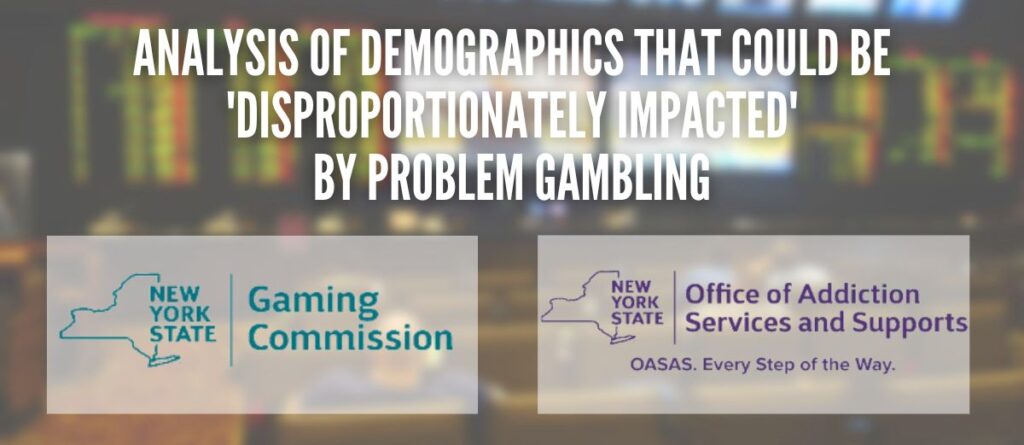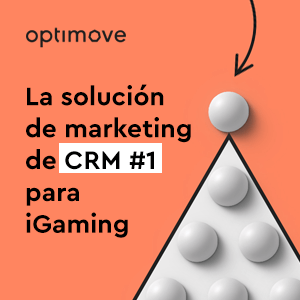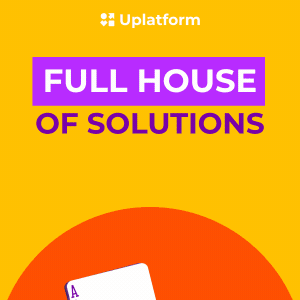Zona de Azar USA – Rise in Female Participation in New York’s Voluntary Self-Exclusion Program
 USA.- September 11th 2023 www.zonadeazar.com The number of people in New York placing themselves on exclusion lists or contacting a gambling hotline has been rising since the start of legal online sports betting, according to an annual state report whose most recent findings somehow went unreported when they were released this summer.
USA.- September 11th 2023 www.zonadeazar.com The number of people in New York placing themselves on exclusion lists or contacting a gambling hotline has been rising since the start of legal online sports betting, according to an annual state report whose most recent findings somehow went unreported when they were released this summer.
According to the New York State Gaming Commission and the Office of Addiction Services and Supports, the first full year of online sports betting in NY saw a 33% increase in voluntary self-exclusion requests and a 23% hike in call volume to the NY HOPEline.
What exactly is in the NY gambling report?
The report, which is required by law and was last updated on June 29, is a compilation of data.
It does not contain analysis or attempt to interpret the information. It also does not make any correlation between the start of online NY sports betting on Jan. 8, 2022, and the collected data.
Although the report does note that “the advertising associated with mobile sports wagering companies has resulted in unprecedented exposure for the HOPEline,” which is funded by OASAS.
New York became the country’s largest legal sports betting market last year. As a result, officials expected an uptick in gambling-related issues. More options, the appeal of sports and the ease of access with mobile betting have resulted in similar increases in other states that legalized online gambling ahead of the Empire State.
Women more likely to opt out of legal NY gambling
Not all of the results from NY’s report were expected.
More women than men have enrolled in the state’s voluntary self-exclusion program in the last two-and-a-half years.
Between January 2021 and April 2023, 1,549 women and 1,230 men requested their names go on the list of persons excluded from legal gambling in NY.
By the numbers: NY gambling report
The report broke the data down by race and age as well.
The total number of white people (1,427) who signed up for self-exclusion was more than the collective total (1,352) of all other identified races. Given that Caucasians account for more than 68% of the state population, according to 2022 US Census data, the report’s findings are on par with projected outcomes.
The majority of people who opted for self-exclusion were between the ages of 31-40 (658), 41-50 (668) and 51-60 (656). According to the report, 322 people in NY between the ages of 19 and 30 have opted for self-exclusion since 2021.
Here’s a breakdown of the annual calls to the OASAS HOPEline:
- 2021: 1,899 total calls (39 out-of-state)
- 2022: 2,402 total calls (90 out-of-state)
- 2023 (through March): 604 total calls (26 out-of-state)
The report also references NY online sports betting by minors and notes that the state’s sports wagering law requires operators to strictly prohibit underage gambling. In 2022, the NYSGC became aware of 58 alleged occasions of underage gambling through lawfully created accounts. In all circumstances, according to the report, officials closed the accounts.
Looking ahead to next NY online sports betting report
The New York Racing, PariMutuel Wagering and Breeding Law — the formal title of the state’s sports betting law — requires the NYSGC and OASAS to annually submit a report to the governor and state legislature “on the impact of mobile sports wagering on problem gamblers in New York, including, to the extent practicable, an analysis of demographics which are disproportionately impacted by the problem gambling.”
The data comes from NY sports betting participants and those seeking help for gambling addiction. Its purpose: To inform problem gambling prevention, treatment, recovery and responsible gambling efforts.
Both agencies continue to collect additional data and demographic information for the next update. According to the NYSGC and OASAS, statistical and demographic information incorporated into future annual reports expects to include:
- Land-based vs. online self-exclusion
- Length of time of self-exclusion
- People who visit sports betting licensees’ problem gambling web pages
- Sports gamblers who hit a deposit limit and opt to keep playing vs. taking a break
- Identify specific geographic regions or vulnerable populations in need of services and develop programming to address those specific needs.
There is no timetable for the agencies to publish their updated findings.
Edited by: @MaiaDigital www.zonadeazar.com











































